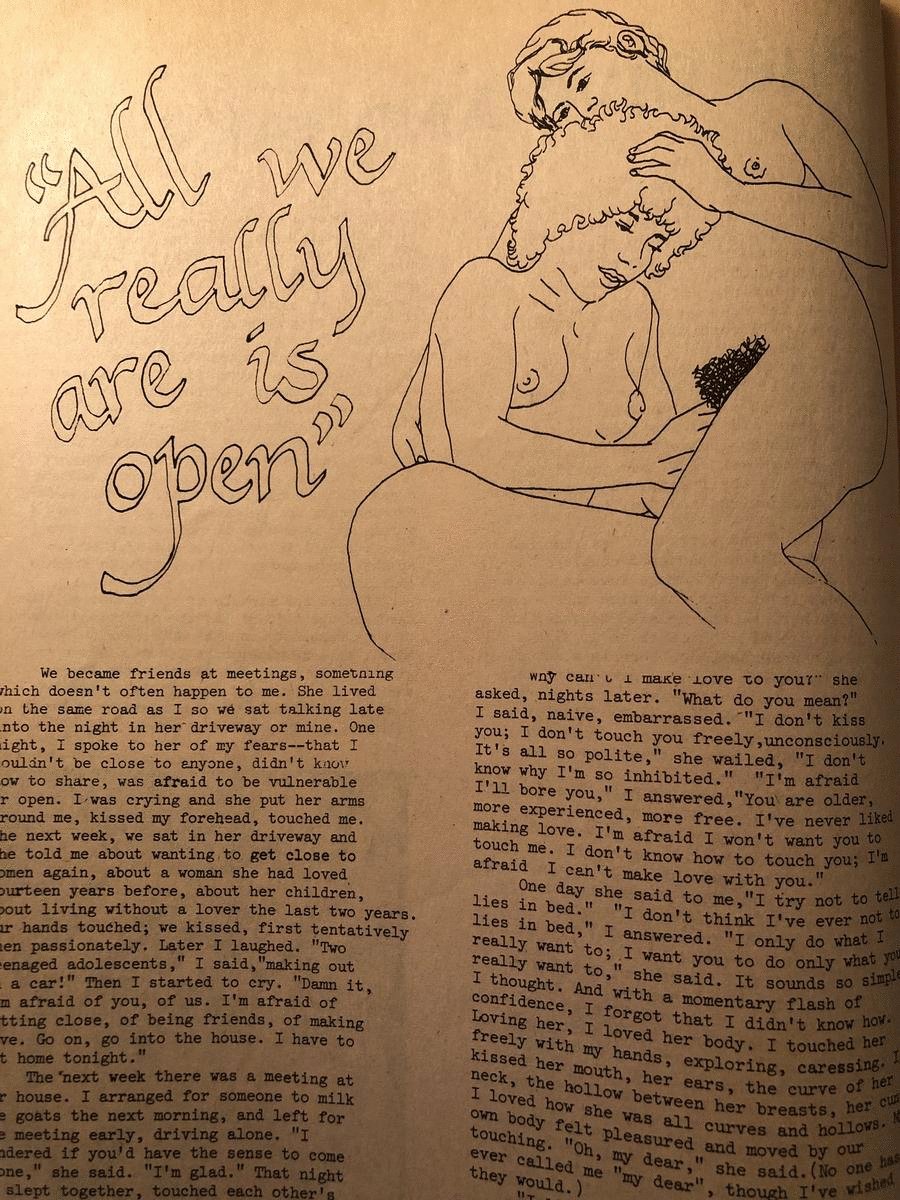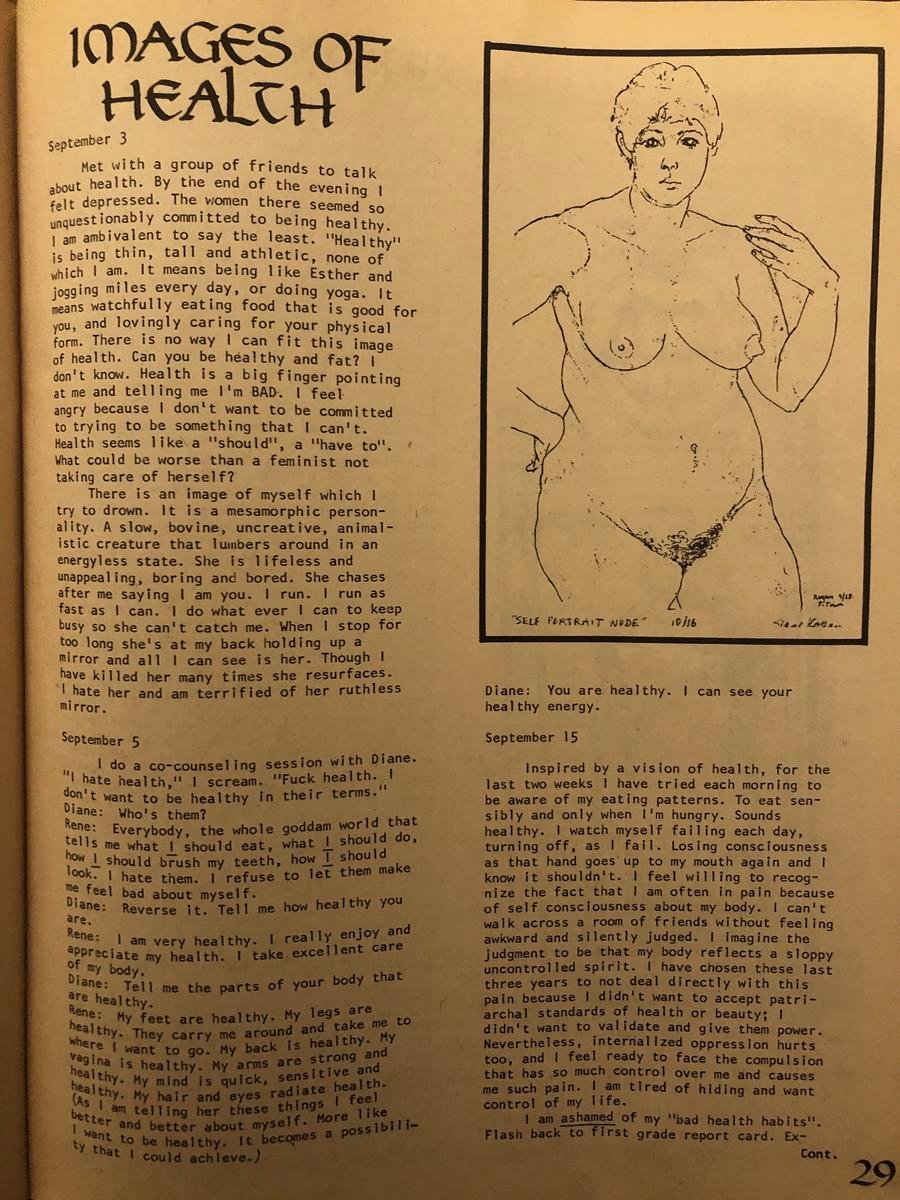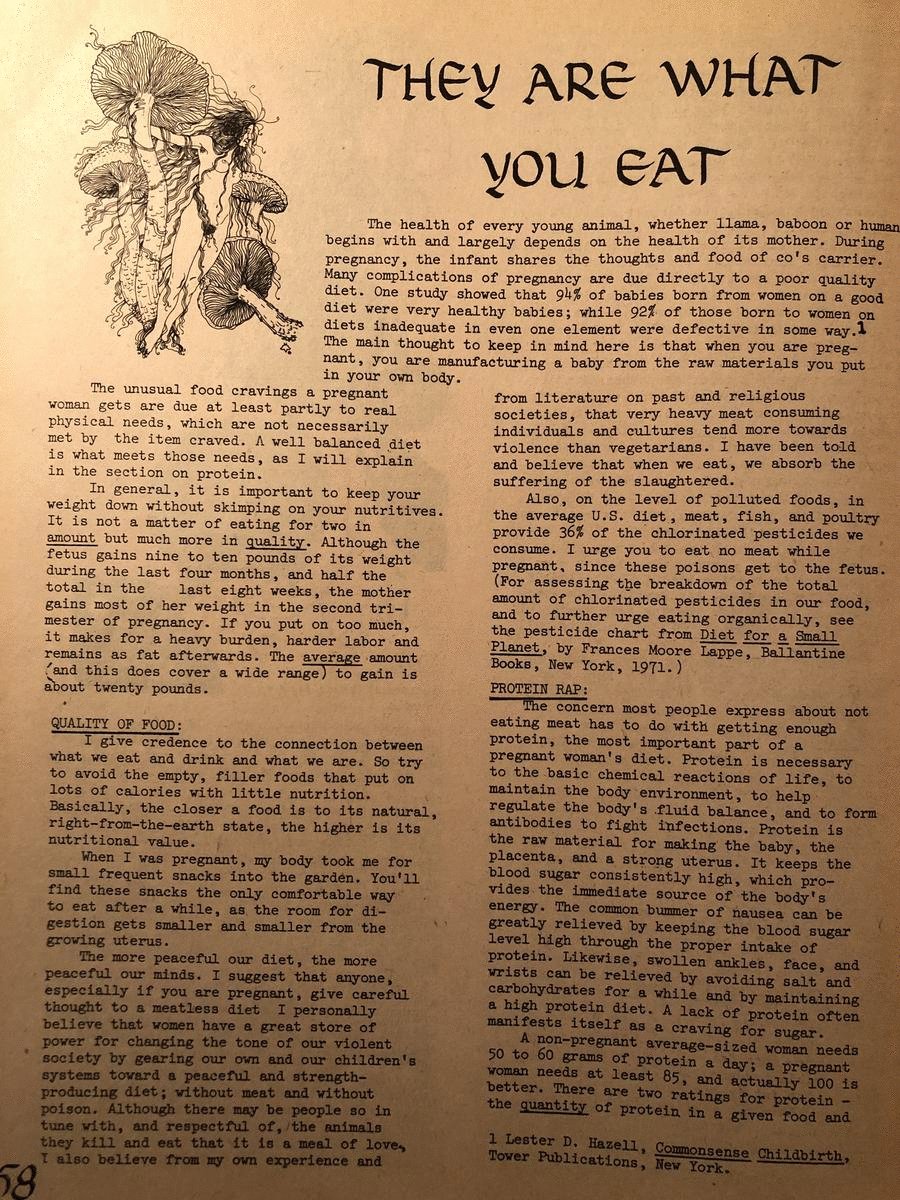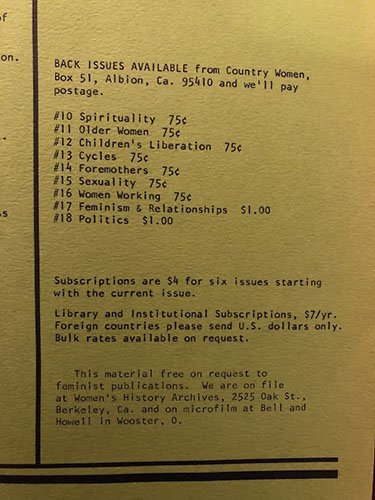Mazer Archives September 2021 Newsletter | Out of the Archives: Country Women
Perhaps this is or isn’t the most relatable narrative when navigating one’s personal path in this life, but for me, sexuality was something on a far off cloud — conceptual in nature and distant by design. I grew up in a home where shame and fear of a Creator permeated through our psyche. Television, movies, books, magazine, music all provided a pathway into what felt like another dimension, contextualizing our wants and cherry picking our needs. I couldn’t be less in touch with myself. Queer meant unusual, this I knew — but what did that mean for me? The question typically did not linger longer than that and make no mistake, my ability to repress and fight and ignore had impressed even myself and altered my own consumption of media. Coming to the Mazer meant making visual connection to that far off cloud — touching, reading, listening for the first time. I stepped into the archives and simply never left.
Country Women covers
“Country Women is all of us… Country Women is each of us…”
I had arrived as a student of Marie Cartier (who many of us have the pleasure to know) by way of fulfilling volunteer hours for a course in my final semester of CSUN. A peculiar stairway, a framed pair of Birkenstocks and possibly the kindest group of people I had ever met welcomed me immediately upon arrival. My eyes were captivated by everything, in particular the periodicals. Pages and piles of essays, interviews and poetry unveiling that every issue was a community and every word was a person. Any periodical was of interest to me. I just wanted to know more. I was searching for myself within these pages.
A particular periodical, Country Women immediately caught my attention. It was started in 1972 by Carmen Goodyear out of Albion, California. It was understated and captivating with delicately illustrated hand drawings inviting me in with a certain warmth. It was unlike anything I had held at the Mazer thus far — DIY-focused articles that took their issue topic and stretched it to all ends. There was everything from raising motherless baby calves, to making beads, feminism and vegetarianism, institutional injustice in rural America, herbicides, poems on grieving and loss, pregnancy, a recipe for zucchini marmalade, and the list went on and on. Each story or poem was accompanied with whimsical drawings; everything was connected to everything, much like that of nature, much like that of the self.
In a way, understanding and honoring one’s queerness is returning to nature and understanding self-sufficiency through the power of community and communal knowledge. Having grown up in a world advocating for suppression, this was a new reality for me. The first issue I read through was Cycles documented everything from moon cycles to menstruation to seasonal gardening. It was gentle yet stern and intentional. I felt the cool winds of Mendocino County, though I had never visited.
This periodical remains important to me for allowing me inside of a world I never thought was possible — a life of self sustenance and in loving embrace of who I am.
“Country Women is all of us… Country Women is each of us…”





